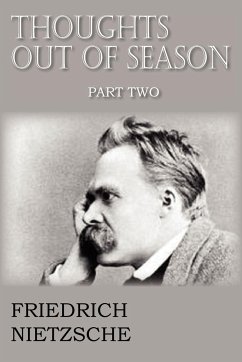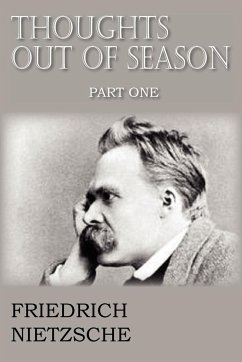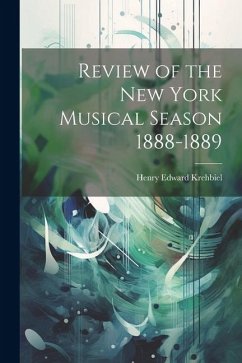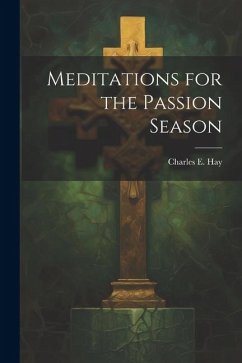
Thoughts Out of Season Part II
Versandkostenfrei!
Versandfertig in 1-2 Wochen
13,99 €
inkl. MwSt.
Weitere Ausgaben:

PAYBACK Punkte
7 °P sammeln!
I have tried to describe a feeling that has often troubled me: I revenge myself on it by giving it publicity. This may lead someone to explain to me that he has also had the feeling, but that I do not feel it purely and elementally enough, and cannot express it with the ripe certainty of experience. A few may say so; but most people will tell me that it is a perverted, unnatural, horrible, and altogether unlawful feeling to have, and that I show myself unworthy of the great historical movement which is especially strong among the German people for the last two generations. I am at all costs go...
I have tried to describe a feeling that has often troubled me: I revenge myself on it by giving it publicity. This may lead someone to explain to me that he has also had the feeling, but that I do not feel it purely and elementally enough, and cannot express it with the ripe certainty of experience. A few may say so; but most people will tell me that it is a perverted, unnatural, horrible, and altogether unlawful feeling to have, and that I show myself unworthy of the great historical movement which is especially strong among the German people for the last two generations. I am at all costs going to venture on a description of my feelings; which will be decidedly in the interests of propriety, as I shall give plenty of opportunity for paying compliments to such a "movement." And I gain an advantage for myself that is more valuable to me than propriety-the attainment of a correct point of view, through my critics, with regard to our age. Friedrich Wilhelm Nietzsche was a 19th-century German philosopher, poet, composer and classical philologist. He wrote critical texts on religion, morality, contemporary culture, philosophy and science, displaying a fondness for metaphor, irony and aphorism.














